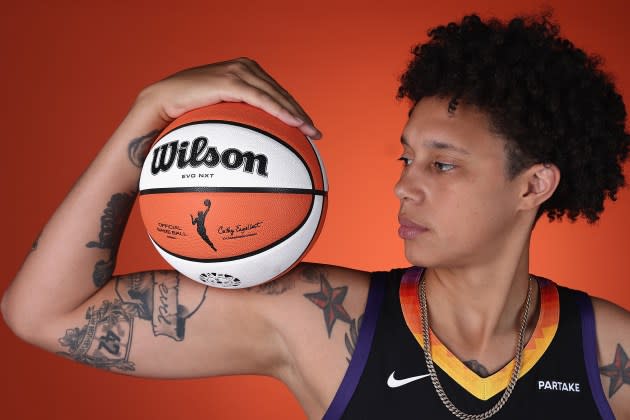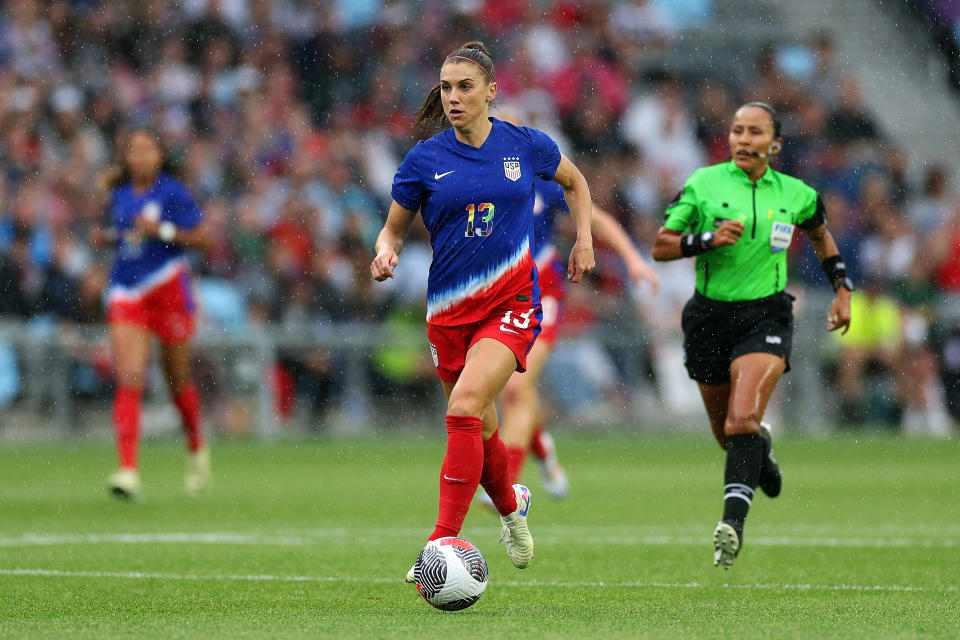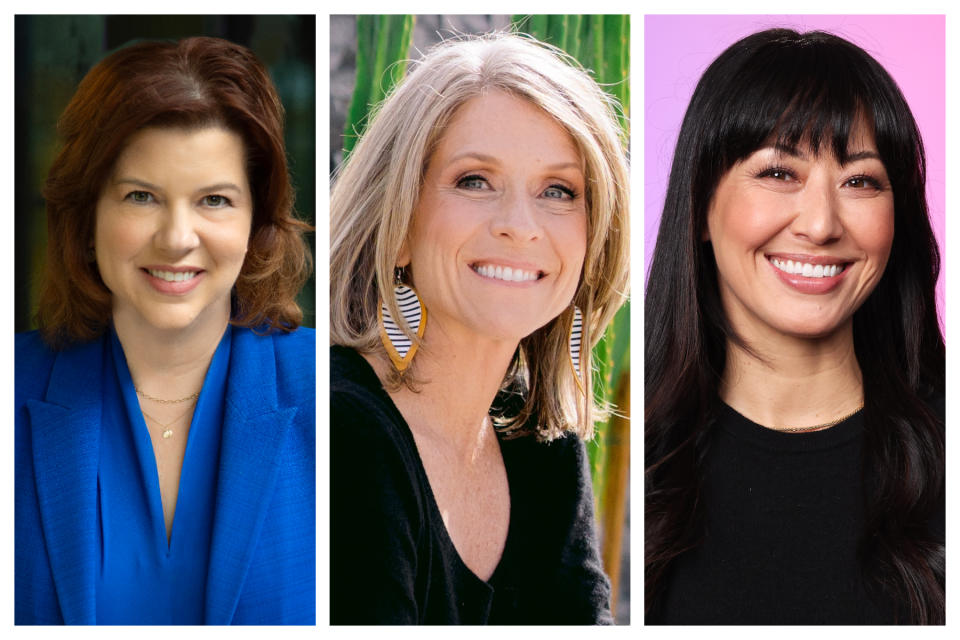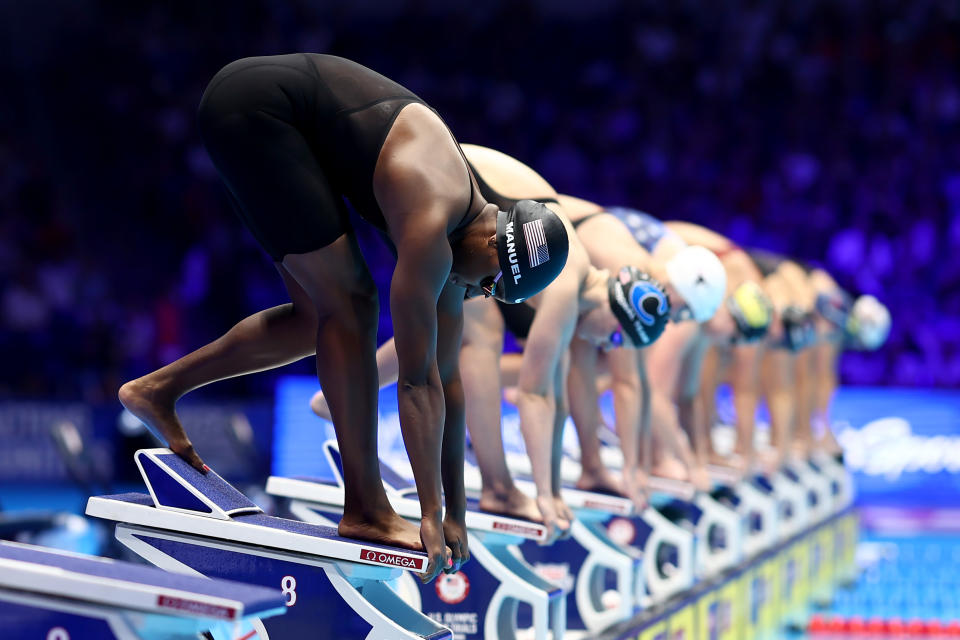From Megan Rapinoe to Simone Manuel, The Collective Celebrates Five Years of Betting Big on Women Athletes and Artists

In 2019, the Collective bet big on female athletes. An offshoot of sports, music and entertainment giant Wasserman, the Collective was launched to concentrate on female athletes, continuing the work Wasserman had begun with women in sports in earnest in 2003.
Now, as it celebrates its fifth anniversary, the company’s bets are paying off, as women’s sports have rocketed in popularity with audiences, and the shingle moves into music artist representation.
More from Variety
“This milestone for the Collective is an opportunity to reflect on our company’s decades-long history of investment in women — first in sports, and now in music, entertainment and culture at large,” says Casey Wasserman, chairman and CEO of the parent company bearing his name. “While momentum around women’s sports is seemingly at an all-time high, we acknowledge there is still much work to be done. Our commitment is that Wasserman and the Collective will continue to lead and drive innovation for brands, properties and talent across all the industries we touch to create real, lasting change.”
Wasserman pioneered such pacts as the first major shoe deal with an openly gay athlete (2013, Brittney Griner and Nike), the first deal for a female athlete to be on the cover of an EA Sports video-game franchise (2015, Alex Morgan and “FIFA”) and driving the 2017 creation of the first Barbie to wear a hijab in partnership with fencer Ibtihaj Muhammad.
It was out of this environment that the Collective was launched.
The Collective’s talent pool now includes stars like Olympics-bound swimmers Simone Manuel and Katie Ledecky, soccer stars Alex Morgan, Megan Rapinoe and Mia Hamm, WNBA players Diana Taurasi, Breanna Stewart, Sue Bird, Brittney Griner, Nneka Ogwumike and Maya Moore, basketball players Paige Bueckers (UConn) and Kiki Rice (UCLA), beach volleyball player April Ross, fencer Ibtihaj Muhammad and Paralympian Scout Bassett.
Chief among the Collective’s strengths is research and data, key to wooing brands and partners, and building effective marketing campaigns.
“The data shows that the engagement with women athletes is powerful, and it’s really the best dollars spent in sports, because there’s a stickiness,” says Thayer Lavielle, Collective exec VP.

But the organization goes beyond representation. Its mission is to raise the visibility of women not only in sports, but also in entertainment and culture. To that end, it works closely with brands and sports leagues, helping brands craft strategies to market to women — for instance, helping to create the Gatorade Women’s Advisory Board, which aims to address barriers that cause girls to drop out of sports.
And the Collective comes to the game armed with data — loads and loads of data. The Collective Think Tank comprises more than 20 colleges and universities around the world, who collaborate on research and information-gathering, and regularly publish white papers and other scholarship to raise awareness of issues confronted by women in sports and entertainment.
These studies, research and insights drive conversations with brands, partnerships and “how we value them, how we negotiate them, how we activate them, how we create campaigns around them, how we buy media for them, how we measure them,” says Lavielle.
Research includes data on the gap between what male and female athletes make, music fandom and how women consume music.

Another area of study from the Think Tank was done in collaboration with ESPNW. “There had been a long-held stat that less than 4% of all sports media coverage was given to women’s sports,” says Elizabeth Lindsey, president, brands and properties at Wasserman. “So, we looked at 1.2 billion lines of data, and came out with 16%. Better, still not awesome, but better.”
All this date is freely shared with not only the Collective agents, but anybody who wants it — and it makes business sense. The Think Tank gives the Collective the cold, hard facts it needs to get brands to invest in women.
“I believe in data, and trust me, we do a ton of research and insights and provide that to the universe for free,” says Lindsey, who believes that “necessity is one hell of a mother of invention” for female athletes. “The reason the women are so good at what they do off the field of play is because they have to be.
“If you look at male athletes, they earn 85% to 90% of their lifetime earnings on the field of play,” she says. “For women, I think it’s like 10% to 12% on the field of play, and the rest is off the field. It’s endorsements and engagements and media commitments and podcasting and product endorsed. It’s all the stuff that goes around it.”

Lindsay Kagawa Colas, exec VP of talent for Wasserman and the Collective, says traditional sports management was not designed for female athletes and the Collective has helped change that. “The reason I chose to go to Wasserman is because I wanted to be a part of building a practice specifically dedicated to representing women, and largely women of color, many of them queer identifying, non-binary,” says Colas, who reps Manuel and Griner, among others. “Women athletes have always been political, but through just the existence and success in a system that wasn’t built for them.”
She notes that in 2020, the Collective worked with WNBA players Bird and Nneka Ogwumike — who is also the president of the Women’s National Basketball Players Assn. — to help build Raphael Warnock’s successful Senate campaign, which helped to flip the legislative body to a slim Democratic majority. “I know that was very much a labor of love, right from our agency in support of clients who said, ‘Hey, this is happening.’”
This year, there’s been a huge rise in ratings for women’s college basketball, softball and other sports, while women are poised to break out as the biggest stars of the upcoming Summer Olympics, which is fielding, for the first time, an equal number of male and female athletes.
“I do feel like there’s that momentum; they’re starting to draft off each other a little bit,” says Dan Levy, senior VP of Olympics and women for the Collective. “You see the new professional women’s hockey league that Hilary Knight, one of our athletes, helped start. There’s just so much opportunity that the hope is you come off of a big event like the Olympics, and you keep that momentum as much as you can.”
Levy notes that the sector “was slow moving for a really long time, but we all believed in it, and we felt like we were making a difference, while at the same time moving the needle for sports in general.
“It’s just nice to see the rest of the world catch up a little bit, and for our athletes to be rewarded.”
He cites his client Katie Ledecky’s record-breaking 2018 deal with TYR as an example of progress. “Just 20 years ago, that was probably not going to happen for a woman swimmer. So, seeing that progress across the board and seeing the amount of investment in women has been really super rewarding for me, as you can imagine.”
Don’t think the Collective ignores good business — it has expanded successfully overseas because of its work with research and understanding modern audiences, athletes and entertainers in a quickly changing world and media landscape.
“Casey made a commitment to equal resources for our group,” says Lindsey. “And I’ll tell you that the revenue did not justify that commitment on that day. It was an investment. And it was always an example of, certainly, vision. But you can do good and also do great business. And this was the perfect example of when those things are really one in the same. It was never charity. We’re not the Wasserman Foundation. This was a commitment to growing a business. And I think now we’re seeing proof that that was a really smart bet.”
Best of Variety
Sign up for Variety’s Newsletter. For the latest news, follow us on Facebook, Twitter, and Instagram.


